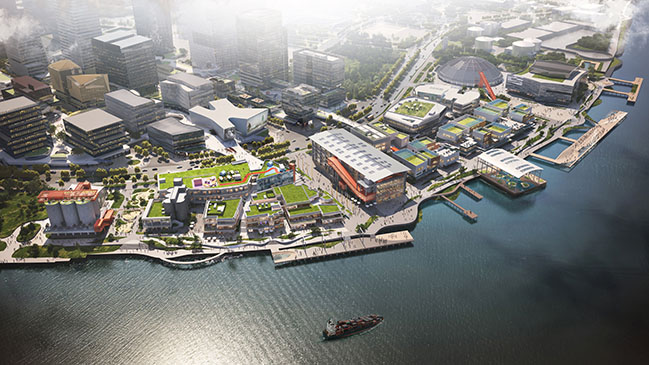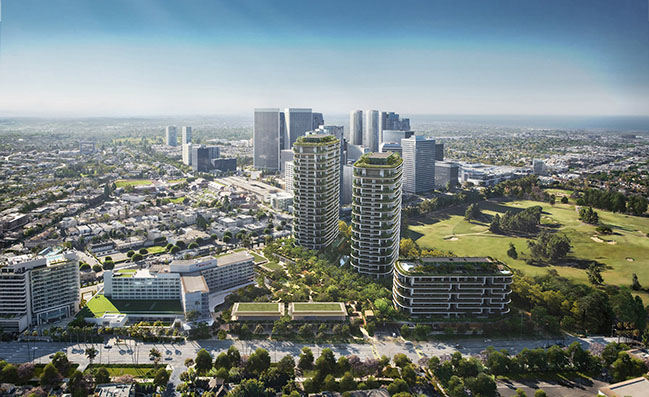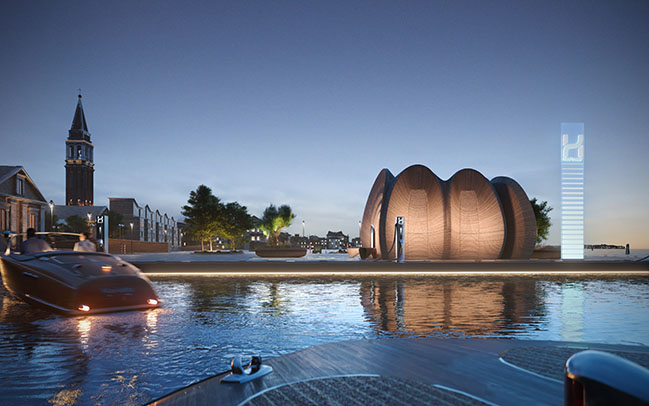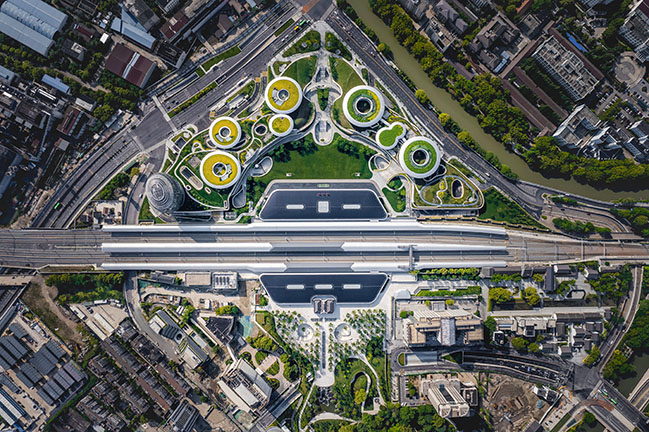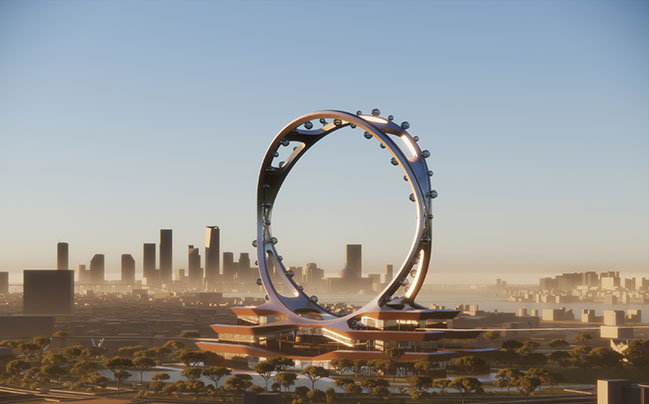02 / 11
2024
DESIGNED BY PAT. ARCHITETTI ASSOCIATI, FALCON HOUSE RISES AMONG THE CANOPIES OF ACACIA AND BAOBAB TREES ON MANDA ISLAND, OVERLOOKING THE ANCIENT CITY OF LAMU IN KENYA. THIS HOUSE IS A TESTAMENT TO THE HARMONIOUS FUSION OF LOCAL CULTURE AND INNOVATIVE CONSTRUCTION SOLUTIONS, REINTERPRETING ELEMENTS OF TROPICAL MODERNISM...
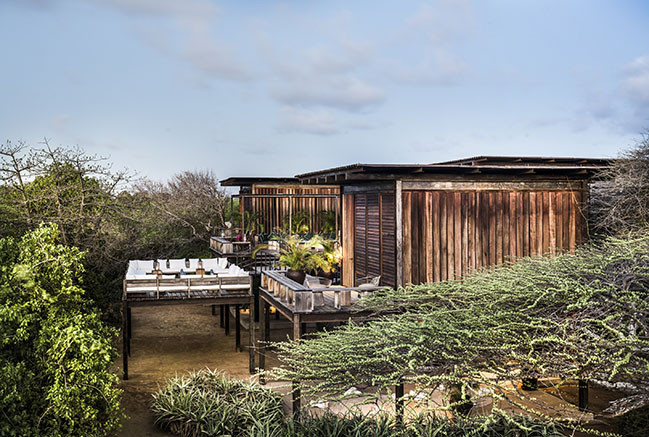
> Villa Jasmine By Obreval And Victor B. Ortiz Architecture
> Cheetah Plains, A Luxury Game Lodge By ARRCC
From the architect: Falcon House is situated on an island without electricity or running water. The project by PAT. architetti associati incollaboration with Ferdinando Fagnola for this residence on Manda Island, overlooking theancient city of Lamu in Kenya, is ingeniously designed to harnessthe forces of nature and adapt to its conditions. The architectural layout of the house consists of separate, raised rooms, allowing the prevailing winds (the Kaskazi, blowing from the northeast between December and March, and the Kusi, blowing from the south between April and September) to naturally cool the rooms, eliminating the need for air conditioning. Electricity, generated through photovoltaic panels, powers a desalination system, converting seawater into potable water for domestic use. Rainwater collected in tanks also contributes to the water supply.
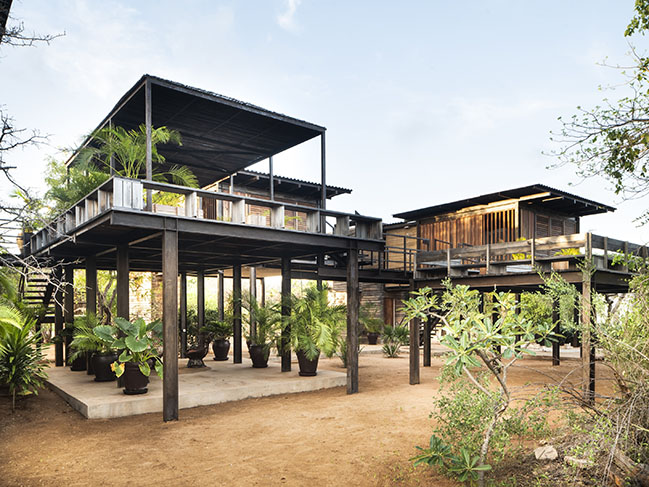
An assembly of pavilion-style structures elevated from the ground
The house presents itself as a scattered assembly of individual pavilion-style structures, each elevated to approximately three meters above the ground on steel stilts, carefully positioned to harmonize with the existing acacia and baobab trees. In crafting this suspended landscape, PAT. and Ferdinando Fagnola initially explored a wooden structural framework. However, in a subsequent phase of collaboration with the owner, PAT. opted for a steel construction system. This decision not only emphasized the house’s distinctive design language but also ensured a more cost-effective construction process.
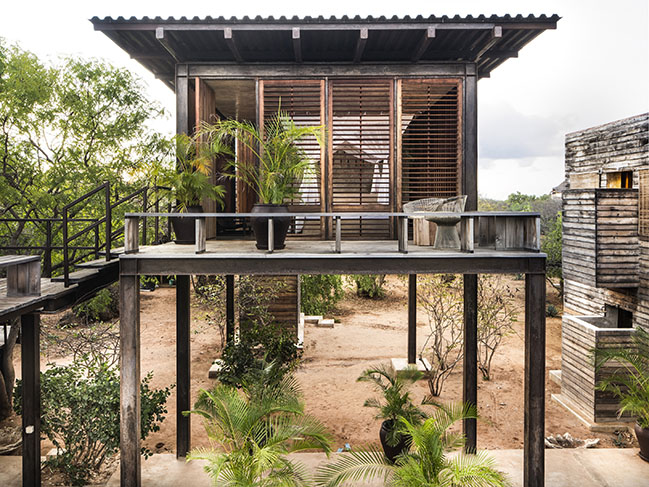
Recycled materials, construction techniques, and environmental quality
Pre-existing bungalows were disassembled with care, salvaging their wooden planks. The pavilions and terraces, situated at varying elevations, are connected by a straight walkway. Service and served spaces are distinctly separated, with bathrooms and wardrobes housed in turrets behind the rooms, linked by small bridges. The rooms, elevated to the level of the tree canopies, are shielded by a flat concrete roof, insulated on the outer layer, supporting a ventilated roofing system made of corrugated corten steel, designed to keep the rooms shaded throughout the day. The ceilings and floors are cast-in-place concrete, while the south wall is made from on-site prefabricated concrete blocks, created by local craftsmen using custom wooden formwork.
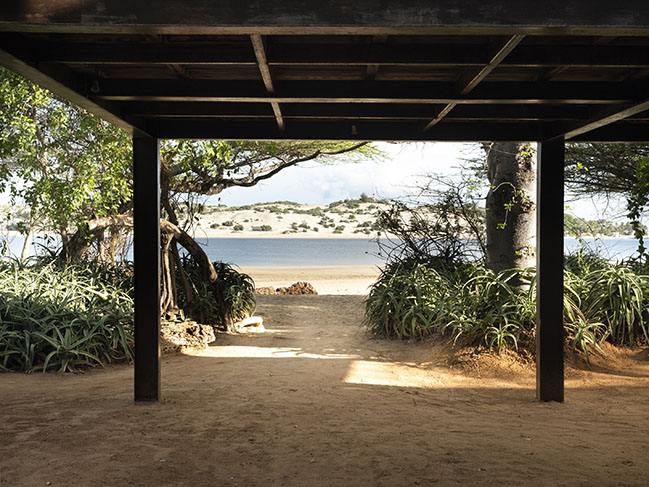
The shaded and ventilated concrete mass acts as a thermal flywheel, helping regulate the room’s microclimate, with adjustable wooden slats on the east and west walls. Four large pivot doors allow the north facade to open onto the sea- facing terraces. The adjustable louvers allow for the control of natural light and ventilation. This adaptable and manually operated climate control system, developed in close collaboration with local artisans, was the result of various mock-ups to arrive at the chosen solutions.
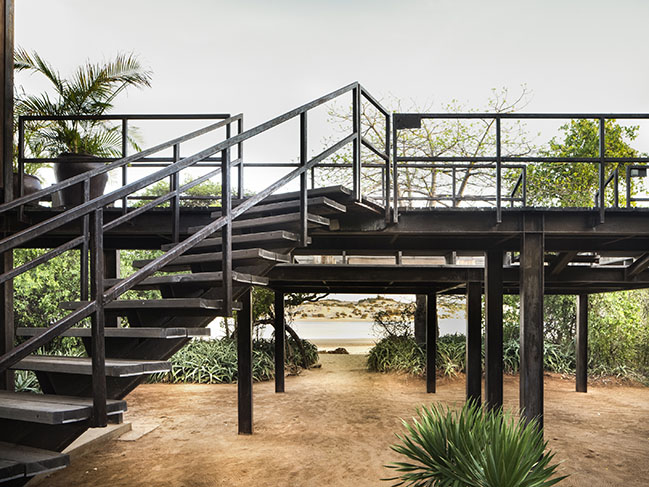
External decks and the bathroom tower cladding feature reclaimed wood from on-site structures and locally abundant, renewable eucalyptus wood, avoiding the use of over-exploited species like mangroves. Iroko wood, known for its durability, was selectively used for sunshade fins to ensure the system’s longevity .
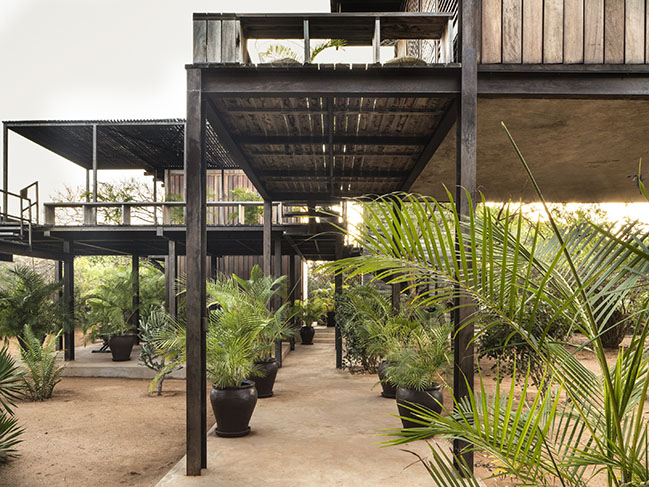
“Our experience of sleeping in the old white house on-site was that it became unbearably hot at night, as its mass released the heat accumulated during the day. We had to resort to sleeping on the roof for relief. This experience prompted us to raise the new house on stilts, bringing life among the treetops and breaking up its volume into pavilions and terraces. This design allows for cross ventilation and eliminates the need for air conditioning. The rooms are sheltered by corrugated metal canopies and fitted with adjustable wooden louvers, creating a simple yet effective climate control system,” wrote architect Andrea Veglia, founder of PAT.
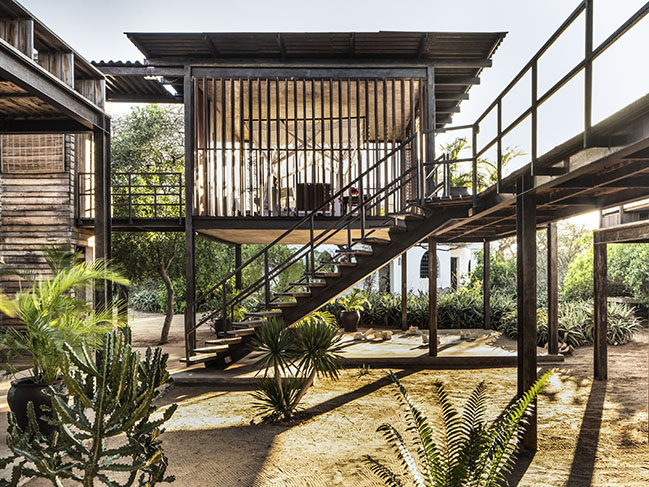
The original house and the utility building
Falcon House was built alongside the renovation and expansion of the original mid- 20th-century ‘white house’ in the Swahili style of Lamu. The white house seamlessly integrates into the pavilion system and offers sheltered living spaces on the ground floor, including a dining room with a large cast-in-place concrete table, a cinema room, and a library. The utility building, an independent pavilion situated behind the residence, was demolished and reconstructed on the same site. It houses the kitchen and now incorporates the new technological core of the house, which includes a photovoltaic rooftop, a battery storage room, a desalination system, and a water tower.
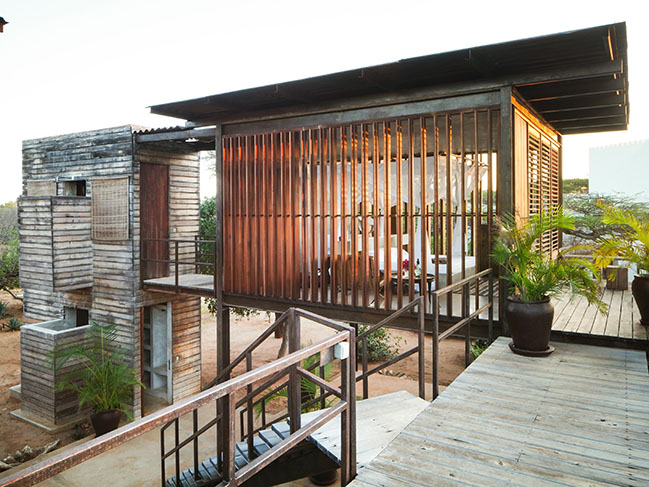
The Client
Falcon House is a distinctive presence on the island’s coast for various reasons, not limited to its design. The client, an heir to a Milanese family deeply connected to the city’s history and the Italian fashion industry, is a passionate contemporary art enthusiast who spent summers at the family house in Sardinia. However, what truly captured his imagination were other houses – those designed by Ferdinando Fagnola and Gianni Francione in the 1970s, recently renovated by Fagnola in collaboration with PAT. These brutalist shells blended seamlessly with the coastal topography, nestling among the vegetation and granite, disappearing entirely from view from the sea. Years later, when the client wished to construct a house in Kenya, he felt a strong desire for a profound connection with the land, reimagined within the equatorial environment. This led him to commission Ferdinando Fagnola himself and PAT. After a collaborative conceptual phase, PAT. successfully brought the project to completion, incorporating contemporary forms and materials that could seamlessly blend with the natural and cultural surroundings, avoiding any hint of exoticism or forced traditionalism.
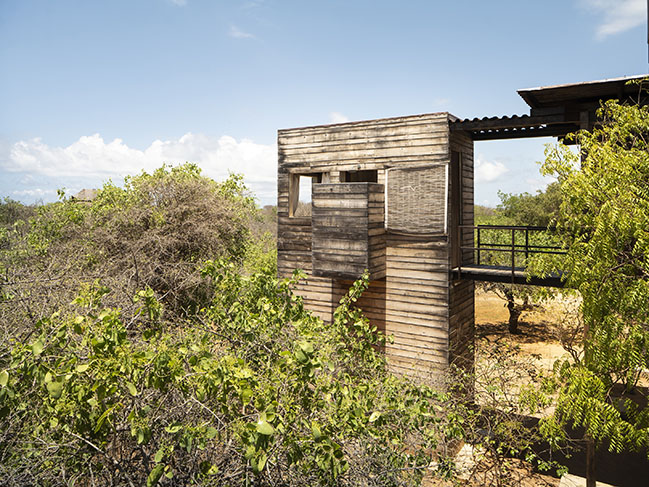
Utilizing local knowledge and experiences
Falcon House was brought to life through the collaboration of a network of local expertise and experiences. The project 8 Falcon House Press release 9 represents a blend of designers who are sensitive to cultural and environmental conditions, seamlessly integrating a variety of sensibilities from both local and distant contexts. PAT. harnessed local resources and expertise to develop sustainable solutions, addressing both innovative aspects and the preservation of tradition.
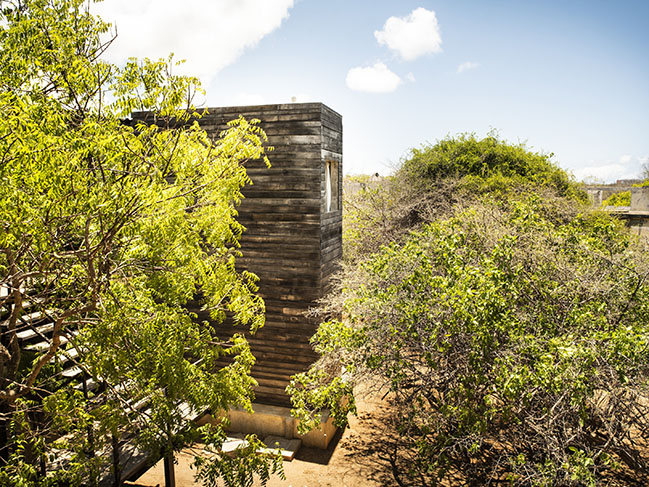
This new project by PAT. is entirely off-the-grid, accessible only by sea due to its isolation from any infrastructure, including roads. The house represents a dedication to complete energy and technical self-sufficiency. It draws inspiration from the beach houses designed by Craig Ellwood and Paul Rudolph, with a particular emphasis on research regarding steel- framed residential architecture, microclimates, and natural ventilation—research influenced by the work of Pierre Koenig, who has been an influential figure for Andrea Veglia since his early studies in California. Falcon House reinterprets valuable insights from a sometimes forgotten modernity with which PAT. maintains a close dialogue.
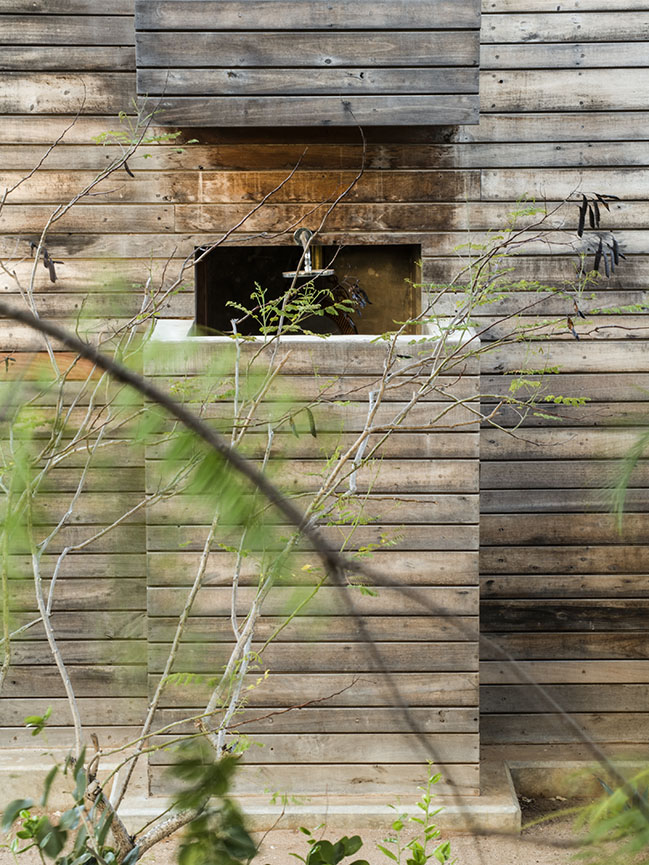
Architect: PAT. architetti associati + Ferdinando Fagnola
Location: Ras Kitau beach, Manda Island, Lamu Archipelago, Kenya
Year: 2023
Project Coordination: Andrea Veglia
Project Team: Andrea Veglia, Ferdinando Fagnola, Benedetta Veglia, Jacopo Testa, Luca Rocca, Francesca Thiébat
Collaborators: Alice Ferro, Alberto Matta, Nicolò Radicioni, Aleksandra Cheremuchina
Architect of Record: George Otieno Adede / Otieno Adede Associates
Structural Engineer: Interphase Consultants
Mechanical Engineer: Studio Forte
Photography: Filippo Romano
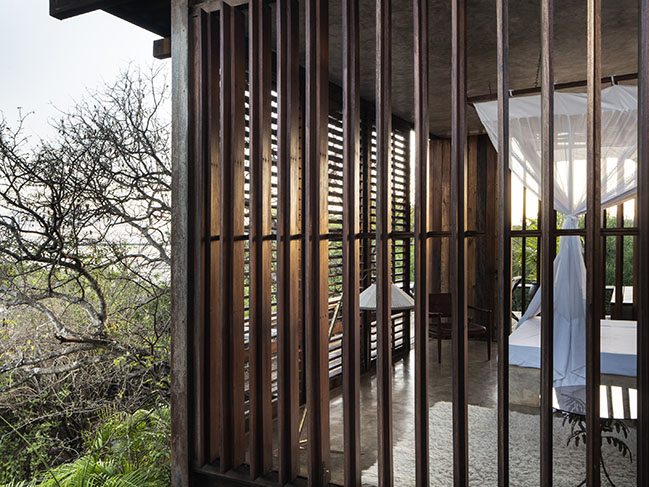
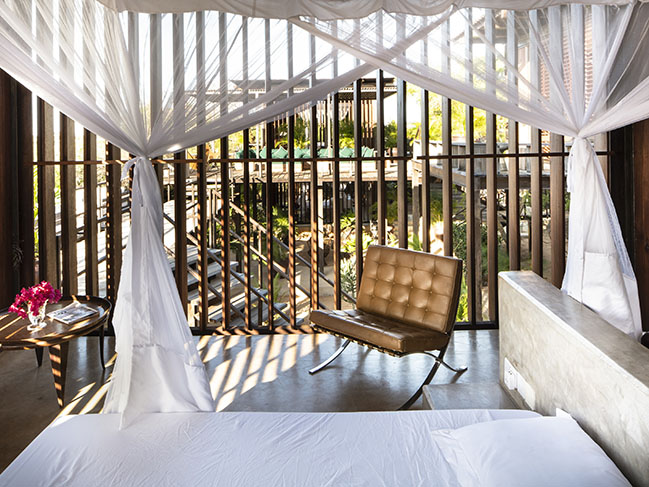
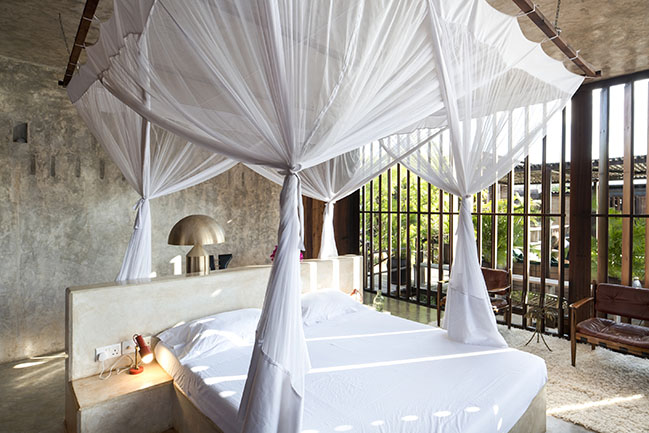
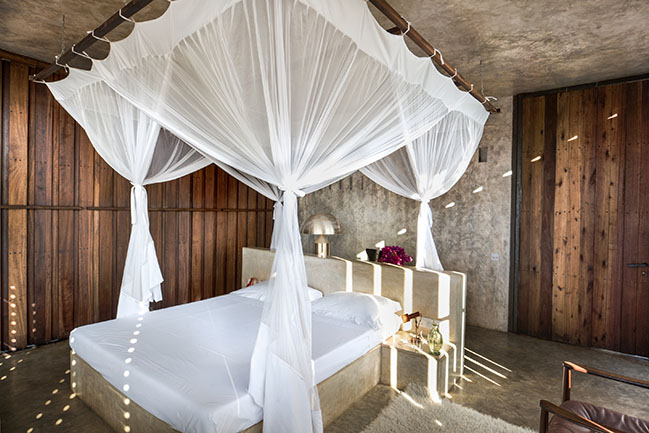
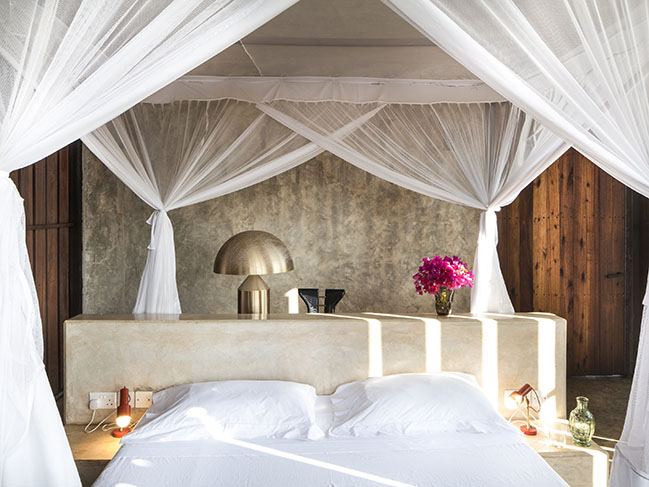
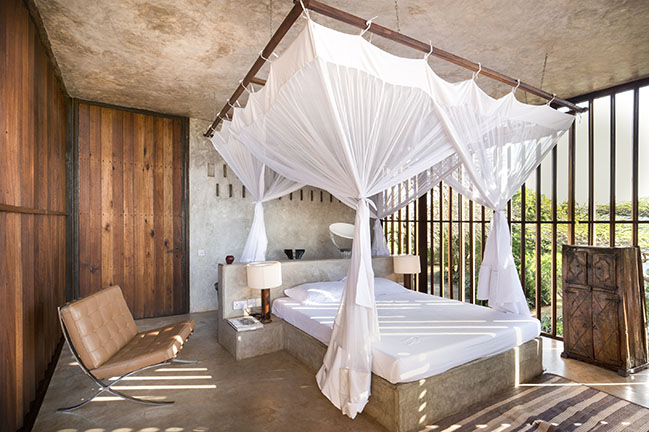
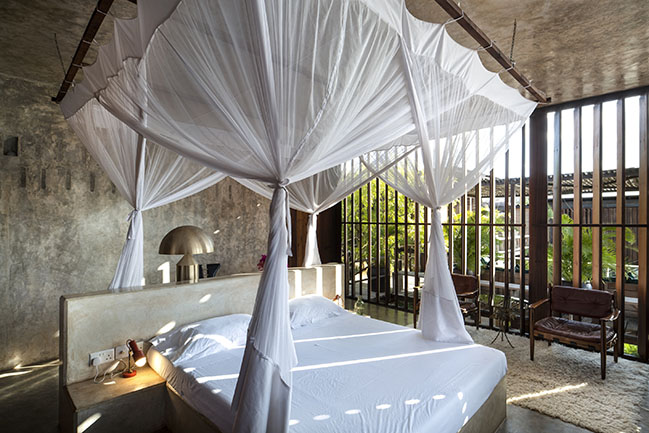
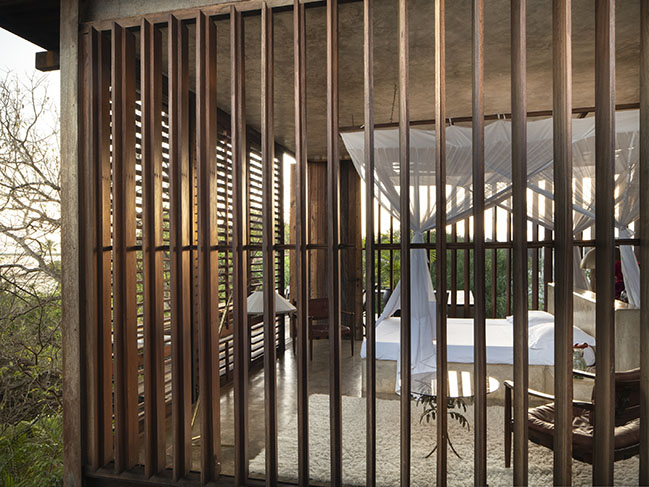
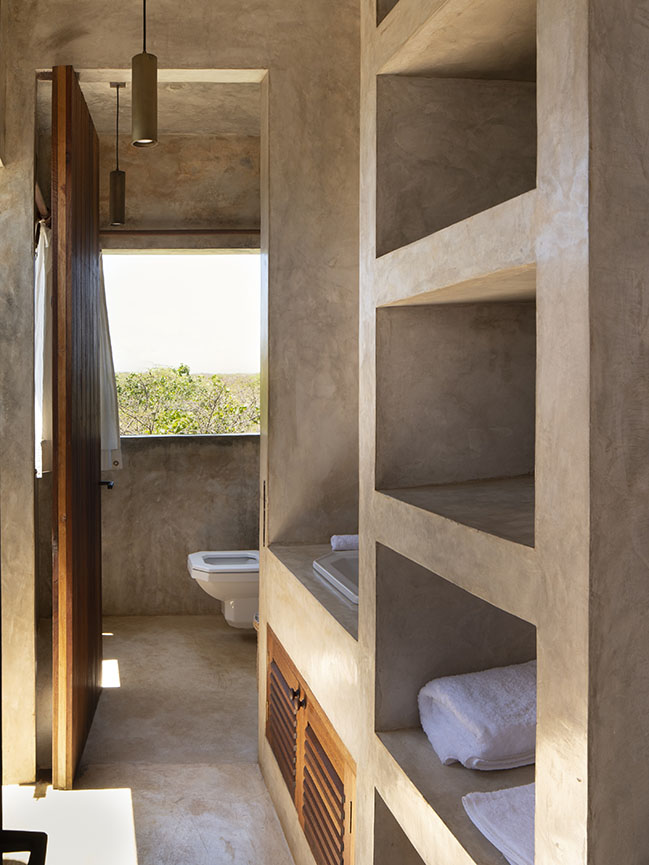
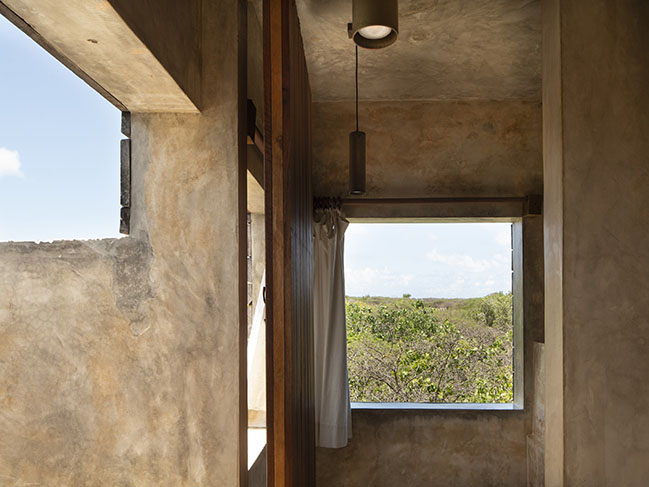
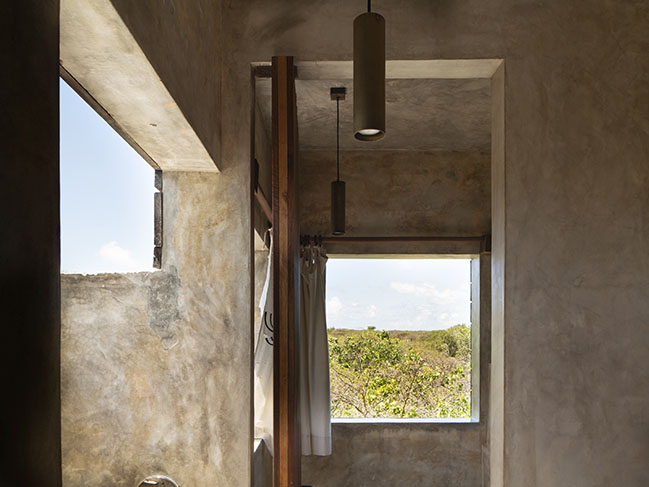
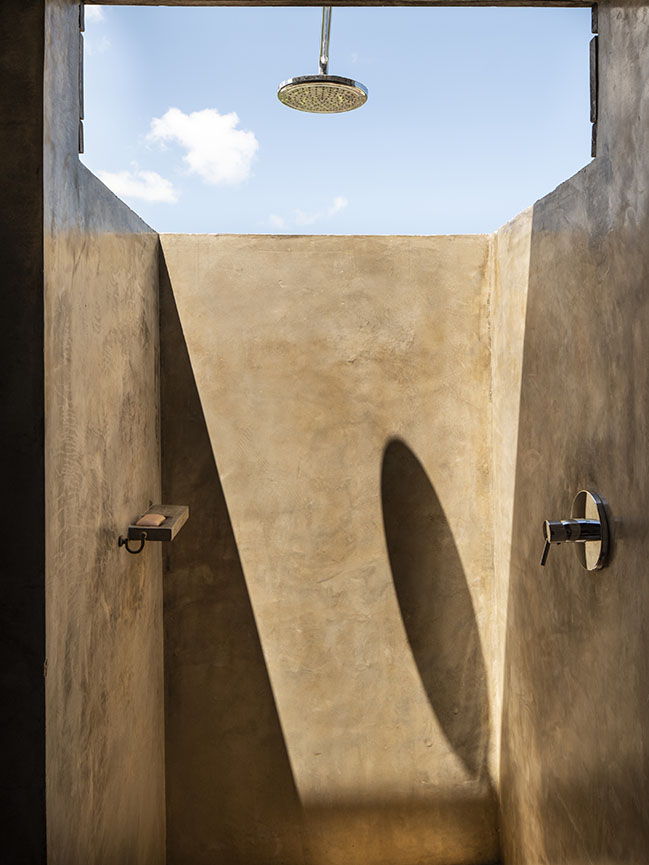
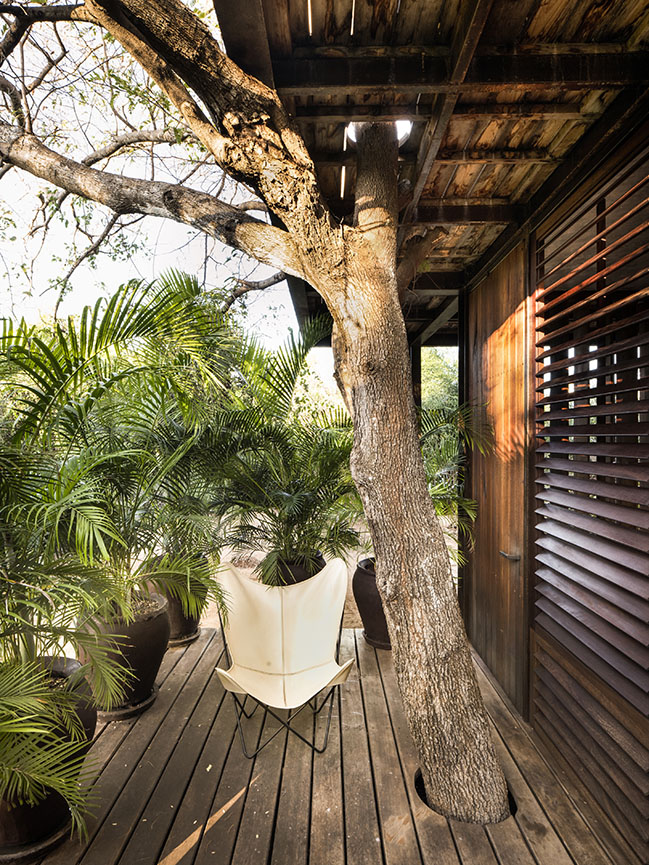
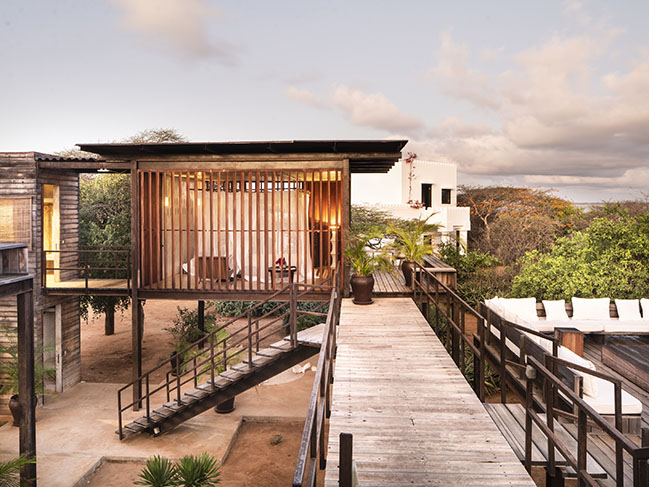
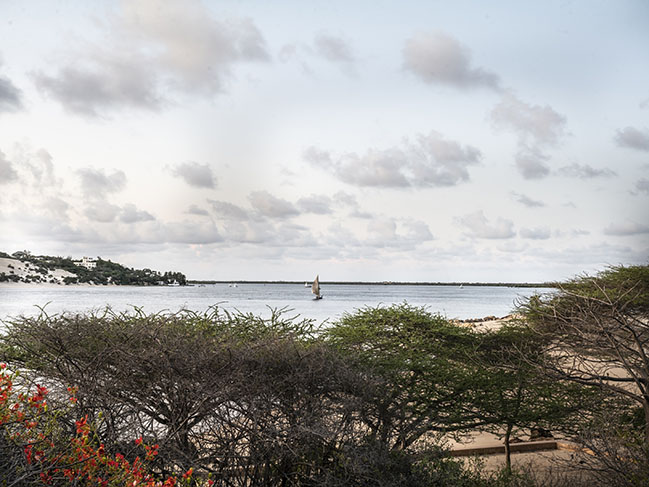
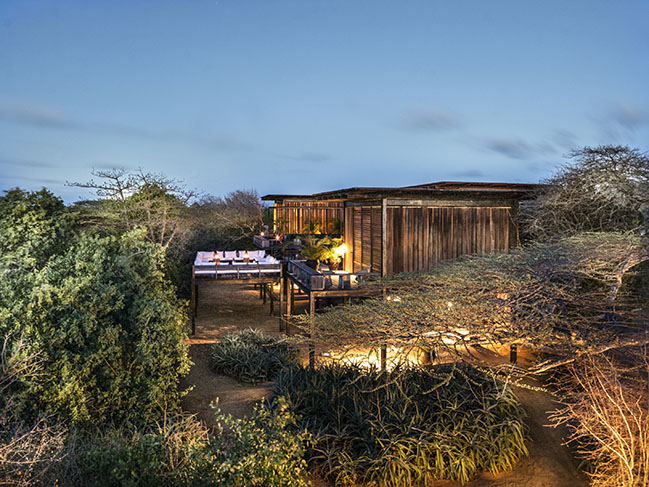
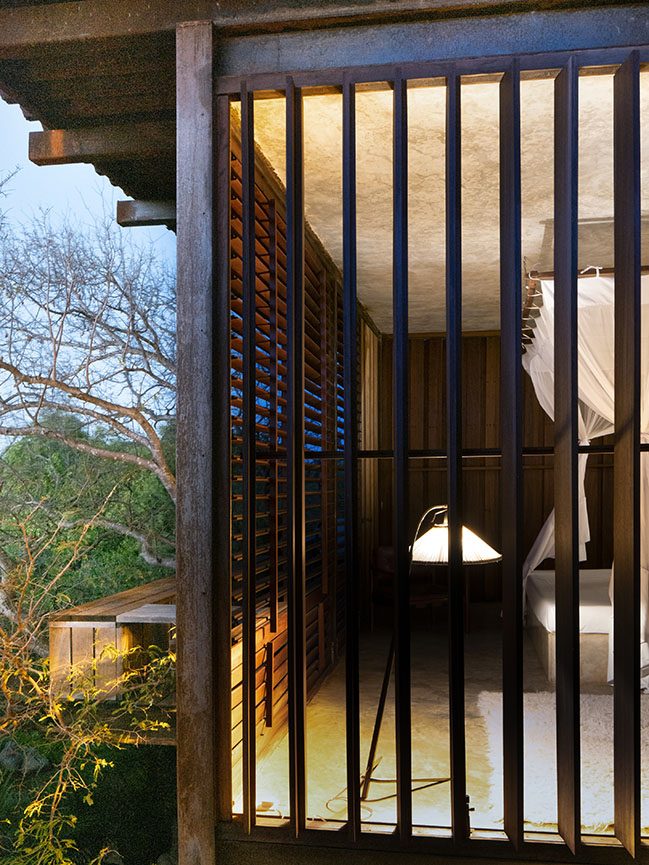
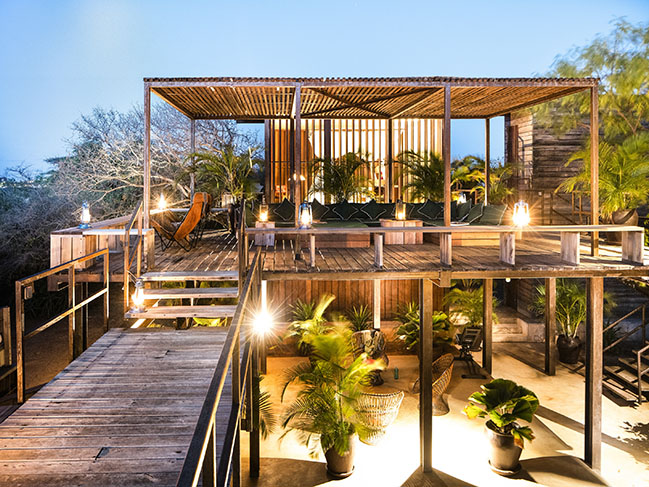
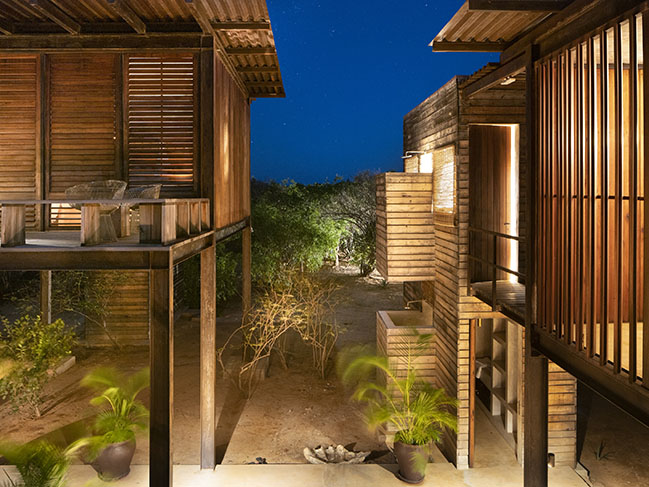
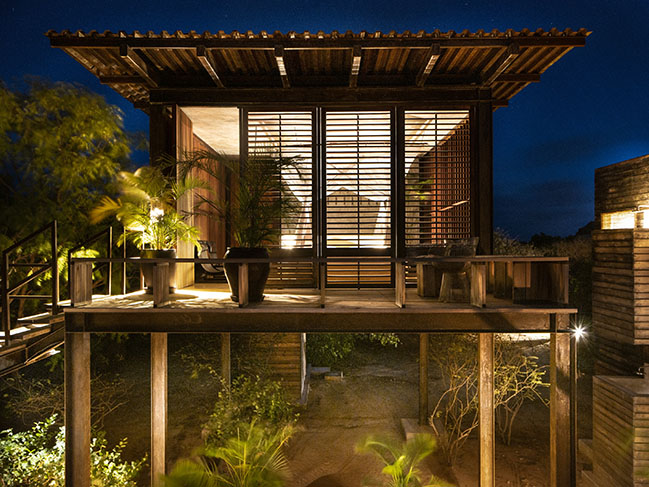
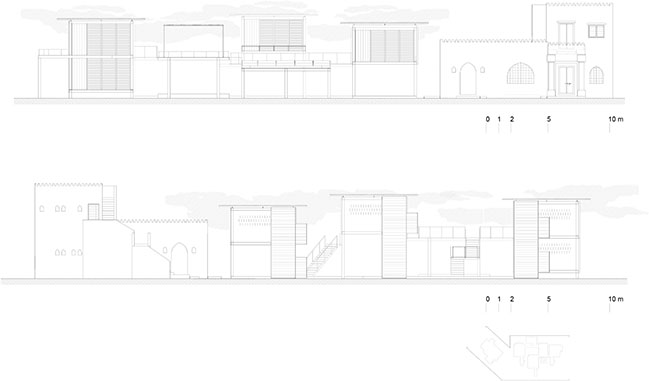
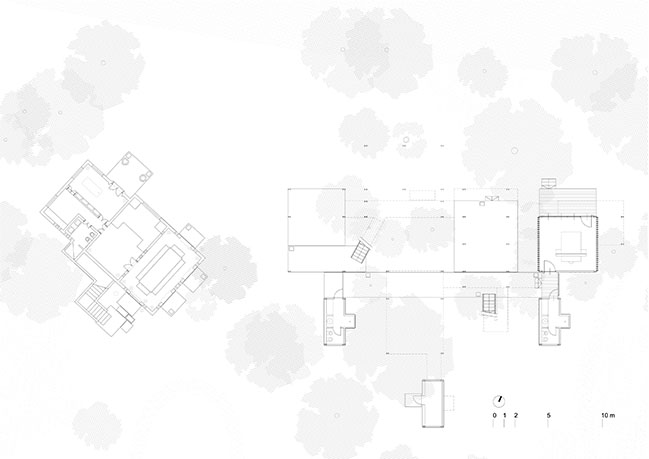
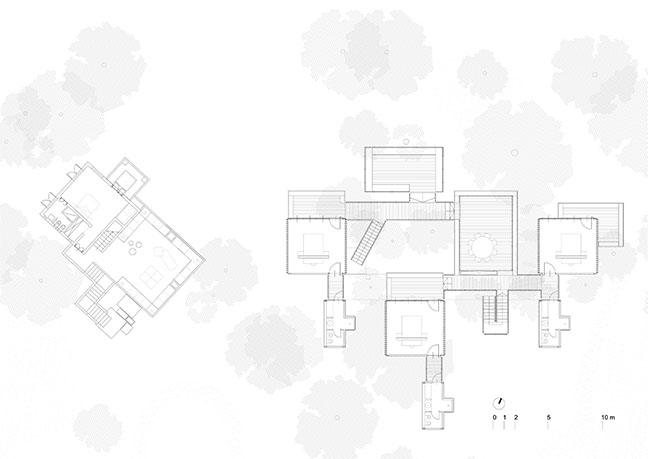
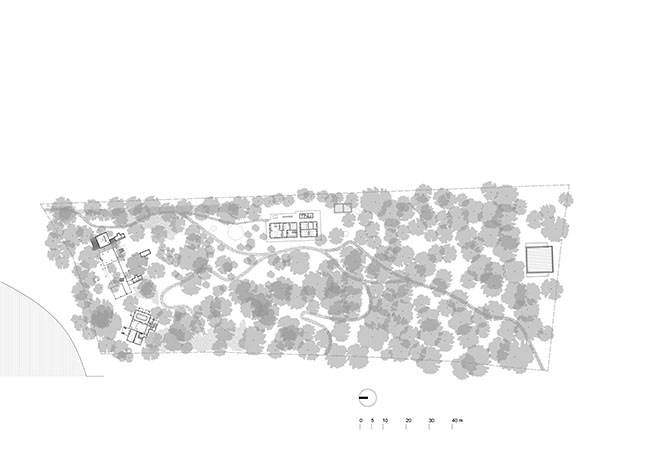
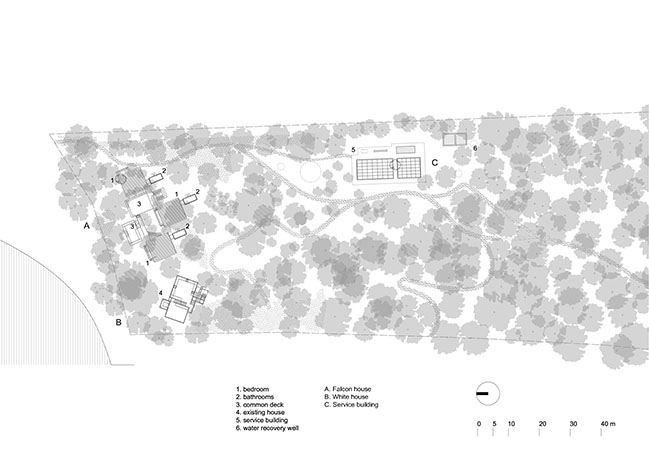
Falcon House by PAT. architetti associati | An off-grid house in Kenya
02 / 11 / 2024 DESIGNED BY PAT. ARCHITETTI ASSOCIATI, FALCON HOUSE RISES AMONG THE CANOPIES OF ACACIA AND BAOBAB TREES ON MANDA ISLAND, OVERLOOKING THE ANCIENT CITY OF LAMU IN KENYA...
You might also like:
Recommended post: Empty House by Fran Silvestre Arquitectos
